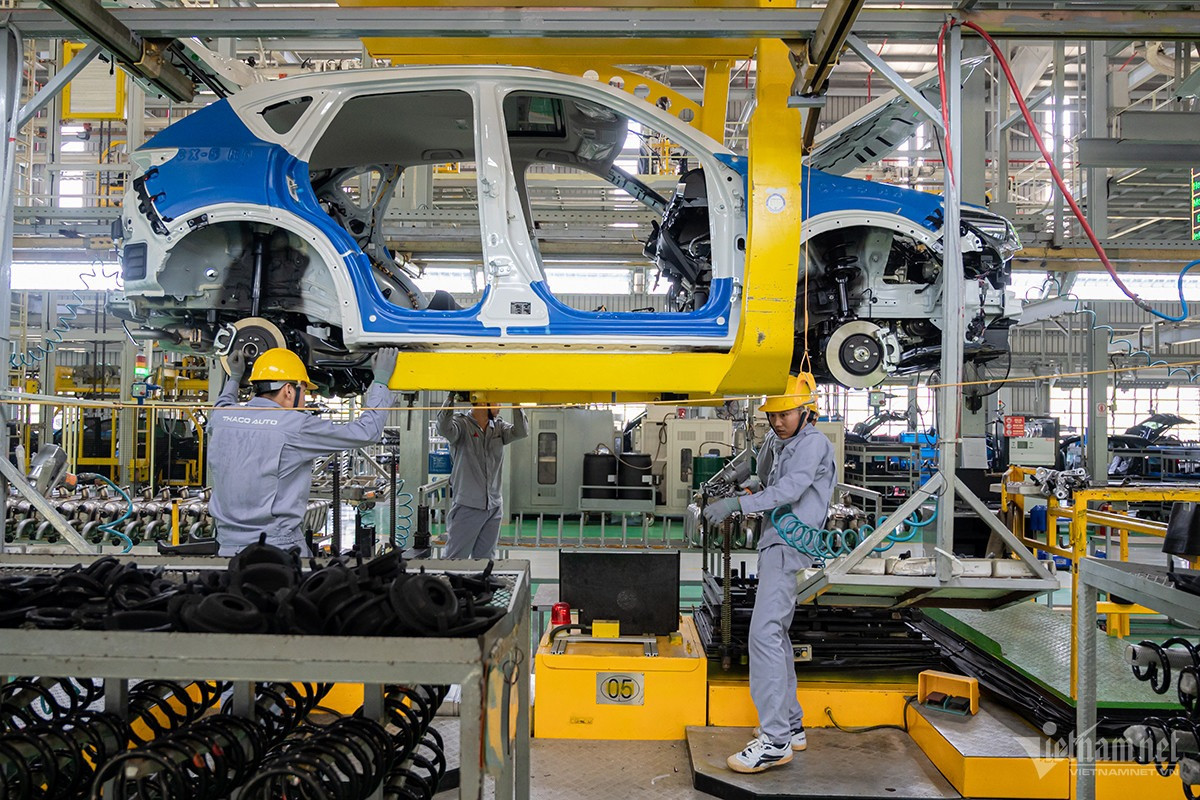The new decree, set to be issued before August 18, is expected to energize the country’s auto market by providing temporary financial relief to buyers.

The Government Office released Notice No. 384/TB-VPCP, which summarizes the conclusions of the Standing Government Committee following a meeting held on August 15, 2024. This meeting, chaired by Prime Minister Pham Minh Chinh, focused on reviewing and discussing the draft decree concerning the reduction of registration fees for locally assembled vehicles.
After careful consideration of the report presented by the Ministry of Finance, as well as inputs from various Deputy Prime Ministers and other attending representatives, the Standing Government Committee reached a consensus to reduce the registration fee by 50% for domestically manufactured and assembled cars. However, in contrast to earlier proposals which suggested a six-month duration, the committee decided to limit this reduction to a three-month period.
Prime Minister Pham Minh Chinh has instructed the Ministry of Finance to integrate the consensus reached during the meeting and to address any feedback from government members. The Ministry has been tasked with finalizing the draft decree and submitting it for the Prime Minister’s approval by August 18, 2024, ensuring timely issuance and implementation.
This policy is expected to provide a substantial boost to the Vietnamese auto market during the final quarter of 2024 by alleviating part of the financial burden on consumers. The new registration fee structure will be based on 50% of the rates specified in Decree No. 10 of 2022, which governs registration fees, in conjunction with relevant resolutions and decisions from provincial and municipal People's Councils across the country.
It is noteworthy that the Vietnamese government has implemented similar policies on three previous occasions, each time reducing registration fees by 50% for a six-month duration. The first of these initiatives, rolled out in the latter half of 2020, resulted in a record surge in domestic car sales, with 398,177 vehicles sold—an impressive 103% increase compared to the first half of that year.
The second policy, which was in effect from December 1, 2021, to May 31, 2022, led to the sale of 232,192 domestically produced vehicles. During the first five months of 2022, domestic car sales averaged 33,690 units per month, a figure that was 1.5 times higher than the average monthly sales during the remaining seven months of the year.
The third policy, introduced in the second half of 2023, also had a notable impact, with 176,483 domestic vehicles sold—a figure that was 1.6 times higher than in the first half of that year.
Currently, the registration fee for new cars is set at 12% in Hanoi and several other major cities, while a 10% rate applies in other provinces.
Beyond the immediate reduction in registration fees, the Standing Government Committee has also tasked the Ministry of Industry and Trade with developing and proposing policies to further encourage the production and use of electric vehicles in Vietnam. These proposals are expected to be submitted for approval by September 2024.
In addition, the Ministry of Construction has been instructed to work closely with the Ministry of Justice, the Ministry of Industry and Trade, and the Ministry of Transport to review and propose amendments to existing regulations. These amendments will specifically aim to address challenges related to the installation of charging stations for electric vehicles at petrol stations, with a report due by the end of August 2024.
These government initiatives form part of a broader strategy to support the domestic automotive industry while promoting sustainable practices within the sector. The temporary reduction in registration fees is seen as a critical measure to stimulate car sales in the coming months, providing a timely boost to the market during the final quarter of the year.
Hoang Hiep